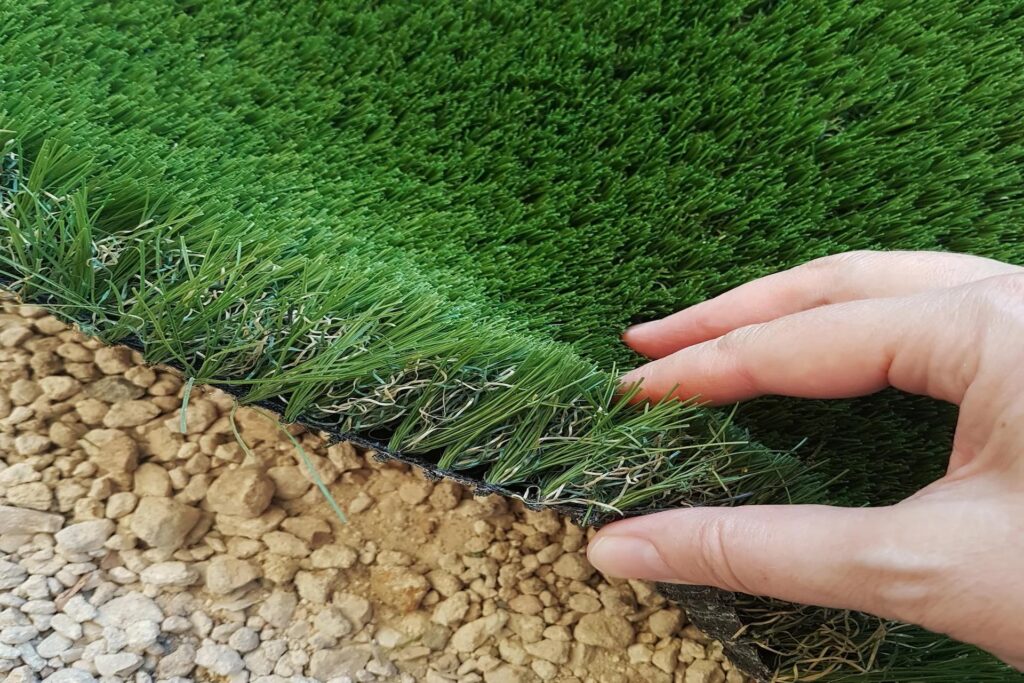Artificial grass has become increasingly popular in recent years as a low-maintenance alternative to natural grass. It is used in both residential and commercial spaces, such as front lawns, backyards, sports fields, and playgrounds. This article will explore the pros and cons of using artificial grass in your home or business.
What Is Artificial Grass?
Artificial grass, also known as synthetic turf or fake grass, is a type of surface designed to mimic the look and feel of natural grass. It is made from synthetic fibres, typically a combination of polyethene, polypropylene, and/or nylon, which are designed to be strong, durable, and long-lasting.
Artificial grass was first developed in the 1960s as a way to provide a low-maintenance, all-weather playing surface for sports fields. Since then, it has become increasingly popular as a landscaping option for residential and commercial properties.
Artificial grass Essex can be installed in a variety of settings, including lawns, gardens, playgrounds, sports fields, and even indoor spaces. It is available in a range of colours, textures, and pile heights to create a natural-looking surface that suits the specific needs and preferences of the property owner.
Why Use Artificial Grass In The Home What Are The Pros Of Artificial Grass?
Synthetic turf, commonly referred to as artificial grass, is becoming more and more popular for use in residential landscaping. Here are some reasons why you might consider using artificial grass in your home:
Low Maintenance: One of the biggest advantages of artificial grass Essex is that it is very low maintenance. Unlike natural grass, it doesn’t require mowing, watering, or fertilizing.
Durability: Artificial grass is designed to withstand heavy use and extreme weather conditions. It is made from high-quality materials that are resistant to fading, staining, and wear and tear.
Safe For Children And Pets: Artificial grass is safe for children and pets to play on. It is non-toxic and free from harmful chemicals, and it doesn’t harbour insects or other pests.
Cost-Effective: Although the initial cost of installing artificial grass may be higher than that of natural grass, it is more cost-effective in the long run. You will save money on water bills, fertilizer, and lawn maintenance equipment.
Aesthetically Pleasing: Artificial grass is available in a range of colours, textures, and pile heights, so you can choose the one that best suits your home’s style and décor. It looks lush and green all year round, making your home’s outdoor spaces look beautiful and inviting.
Environmentally Friendly: Artificial grass is an environmentally friendly alternative to natural grass. It doesn’t require water, pesticides, or fertilizers, which means that it doesn’t contribute to pollution or harm the environment.
What Are The Cons Of Artificial Grass?
Cost: Artificial grass can be more expensive to install than natural grass, especially if it is being installed in a large area.
Heat Retention: Artificial grass can retain heat, making it uncomfortable to walk on during hot weather.
Odor: If not properly maintained, artificial grass can develop an unpleasant odour.
Environmental Impact: Artificial grass is made from synthetic materials that are not biodegradable, which can have a negative impact on the environment.
Conclusion
Artificial grass is a popular option for landscaping, but it has its drawbacks. Consider your specific needs and the pros and cons outlined in this article before deciding whether to use artificial grass in your home or business

